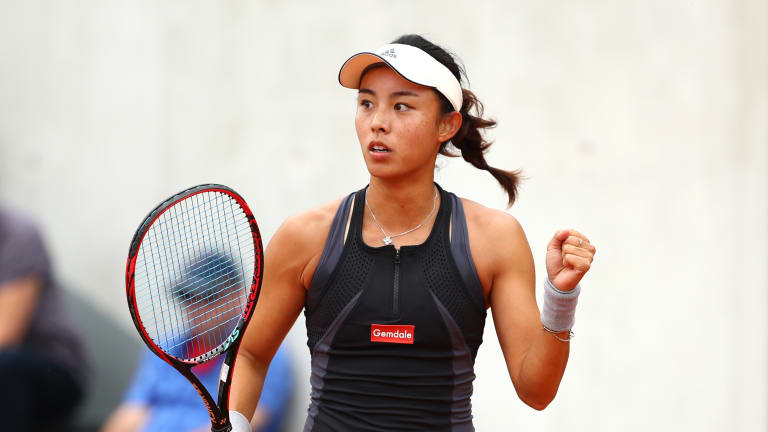Qiang Wang had gone as far as she could go. All she had left were tears.
Two weeks ago, the 26-year-old native of Tianjin, China, reached the semifinals at a tournament in Hiroshima. Last week, she won her second career title, in Guangzhou. And this week she reached the semifinals of the Premier 5 event in Wuhan. By Friday, she had played 11 matches in 12 days. After she won the opening two games of her semifinal against Anett Kontaveit, Qiang Wang’s legs—both were heavily taped when the match began—couldn’t take anymore. She lost six straight games, before finally retiring early in the second set.
Kontaveit looked sorry for her opponent when they met at the net. Qiang Wang had struggled on in obvious pain, far past the stage when most players would have packed it in. The reason was obvious; this was the biggest opportunity of her career so far. She was playing in front of a Chinese audience, in the hometown of Li Na, in a highly-lucrative tournament, one that the WTA had wedged into its already crowded calender to try to take advantange of the interest that Li Na had generated in tennis in the world’s biggest emerging market.
For the better part of two decades, tennis has been relying on the “if you build it, they will eventually come,” theory of audience creation in Asia. Next week the women will head to Beijing for a Premier Mandatory event, and they’ll close their season with the WTA Finals in Singapore, before coming back to China for a post-season-ending event in Zhuhai, China.
This vast push Eastward makes sense for a game that has never had national boundaries. The population is there, the money is there—Wuhan’s purse is $2.7 million—the sponsors want to be there, and the arenas and events are there, in abundance. The fans? They’re there, sometimes. They come to the later rounds of tournaments, they come to see star players, they came out to see Qiang Wang this week, and they always root enthusiastically. Other times, though, they don’t come out at all. The highly-anticipated first-round encounter in Wuhan between Aryna Sabalenka and Elina Svitolina this week was played in front of a small sea of empty seats.
